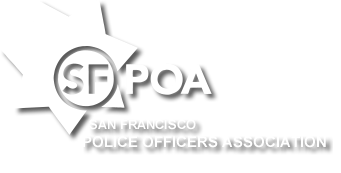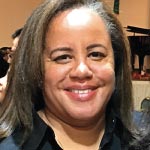As April is National Child Abuse Prevention month, this book is extremely timely. It is also a very personal and emotional declaration of the need for all Americans, everywhere, to learn more about what should be done for children who exhibit suspicious physical injuries.
According to the United States Department of Health and Human Services more than five children a day are killed in this country as a result of child abuse. Eighty percent of the children killed are ages 4 and under and what might be the most surprising is that mothers commit the bulk of child abuse. Forty percent of all child abuse is committed by mothers acting alone. That is startling.
The author is an award-winning journalist who teaches journalism at Central Washington University in Ellensburg, Washington. She was also a mother-figure for Sarah Brill, an adopted troubled young girl who eventually became the dangerously incompetent mother of Karly Sheehan. The murder of young Karly has led to what is known in the state of Oregon as "Karly's Law." It mandates that children who exhibit suspicious physical injuries leading to a child abuse investigation must have photos of those injuries reviewed by a designated medical professional within the first 48 hours of that report.
This book is not just the story of a horrible crime committed by someone who seems likely mentally unbalanced if not outright evil, but also of how the crime could have been avoided and a child saved from a brutal tortuous death.
Rather than go into the details of the book I would like to give you a short outline and hope that you find a way to read it and think about how we, as a community, can prevent or at least reduce the incidents of child abuse.
Sarah Brill, an adopted child, had problems throughout her childhood and teen years. As a result of her behavior her adoptive parents sent her to a Christian boarding school in San Diego, California. She eventually lived with the author of this book, Ms. Zacharias, who had some success in bonding with her, but nothing altered her refusal to accept responsibility for her actions. Sarah was pregnant at twenty-years of age and gave up that child, Anne, to adoption. She later married David Sheehan, an Irish immigrant of strong character and a loving heart. When Karly came into their life many thought Sarah would change. In one sense she did. She became more irresponsible and out of control. David and Sarah divorced and the court decreed there should be a shared joint custody. Sarah met another man, Shawn Wesley Field, in a bar and became sexually involved with him. Shawn was convicted of Karly's murder and is currently serving a sentence of life in prison with the possibility of parole, but he must serve 46 years before he becomes eligible. It seems too lenient to anyone who has read this story. There should be no parole - ever. But there is also a question of who else is guilty. Many people continue to believe that Karly's mother, Sarah, may have had a considerable hand in her death. It is surprising that she was never charged with any crime.
But the author has a list of folks who must share some guilt. Early in the book she writes, "I know that criminal activity isn't just law enforcement's headache and taxpayers' burden; it is somebody's nightmare." Before the book ends many people involved indicate that Karly's death keeps them from peaceful sleep and they acknowledge or believe that they should have done more. The author frequently expresses that she should have stepped in more often and forcefully, and her very heart-felt emotion is frequently clearly written as she tells this horrid tale. Social workers, prosecuting attorneys, police investigators, practically anyone attached to Sarah and Karly in any way, seem to feel some guilt that they hadn't reacted more quickly or with more attention to detail. At the sentencing of Shawn Field, Judge Janet Holcomb stated from the bench, "As a community we have to do some deep soul-searching about how, or if, we might have responded sooner. Might there have been an intervention that could have saved this child's life?...If we are really willing to look at ourselves, this soul-searching might be the very little bit of good that we can create from this otherwise senseless loss."
I strongly recommend this book to everyone in the San Francisco Criminal Justice system. It's not a long book, approximately 300 pages. Although the author frequently lets her subjective feelings interfere with her reporting, the impact of the story is delivered. We have a huge obligation to our smallest, weakest victims who rely on us to protect them.

